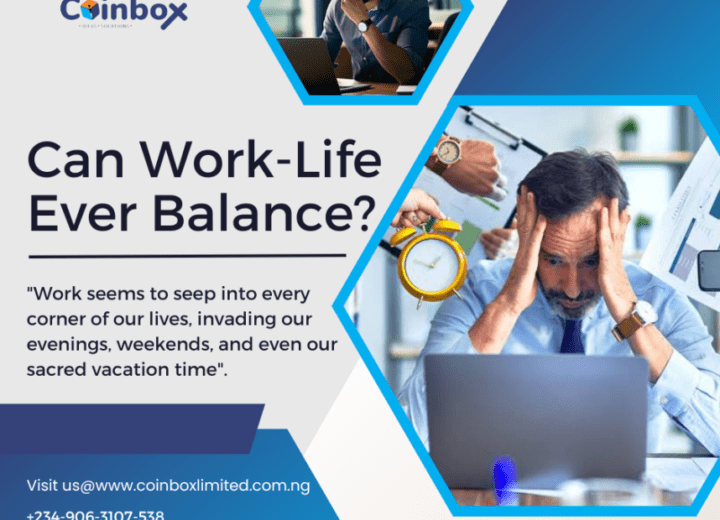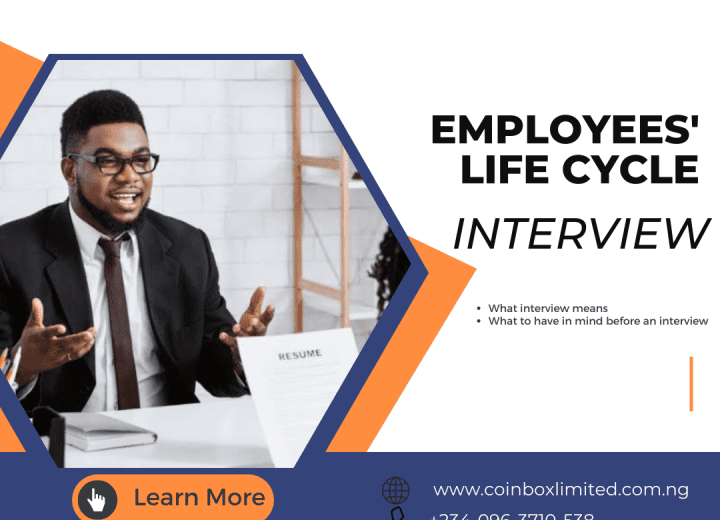Emotional intelligence – EI OR EQ is not about #love or #hate, it’s about #purpose. What is your purpose for that action? What is the primary goal and what emotions, or emotional actions needs to be set in place to achieve this goal?
It’s living deliberately on purpose to achieve defined life missions through defined daily actions. EI is a beautiful study as it helps you achieve the otherwise impossible. With EI you can only have huge dreams as the world becomes your new playfield or chess board. You are always just someone away from your next achievement and all it takes is EI to scale that hurdle.
EI aids your performance and abilities. You can achieve limitless results if you can master yourself or lead your team effectively and efficiently always bringing out the best in them and yourself on a daily journey of excellence. This is very difficult and almost impossible except when you apply EI.
During the 1968 Summer Olympics held in Mexico City, the African-American sprinter Jim Hines earned the title of ‘fastest man on the planet’ when he broke the long-standing 10-second barrier in the 100 meters event. With a time of 9.95 seconds, Hines stormed to Olympic gold and established a 100-meter world record that remained unbeaten for 15 years. Before this time there were controversial publications that considered the 10-second barrier as unbreakable. They said you had to be superhuman to break the 10-seconds barrier. But hear an athlete explain this.
“Yes, but that hundredth of a second from 10.00s to 9.99s means everything. It is something entirely different from cutting your time from, say, 10.50s to 10.49s. The 10-second barrier is as much a physical barrier as it is a psychological one, and it requires everything from the right conditions to plain old luck to be broken. When you think about it that way, someone like Yoshihide Kiryu, the first Japanese runner to break the 10-second barrier, is truly inspiring. I try to always keep abreast of how he’s running, but in the end, the 100-meter dash is really a race against yourself.” The last words there are the key for this article – it is a race against yourself. This means that the better you get, the more you will be able to achieve this feat. You master yourself in EI and you achieve the impossible!
Today, a minimum of 187 athletes has crossed the 10-second barrier since Jim Hines.
There have been many publications on Emotional Intelligence and virtually everything about it. I will be talking about it from the angle of why it does not work for many of us, why, after reading so much and practicing so much, we still fail at so many points? I will be doing this with just 2 main points; These are.
1. Prejudices
2. Emotional baggage.
PREJUDICES
These are preconceived notions or biases about people and situations. It is more like generalizing from a myopic experience. It can also be referred to as a bias or stereotyping. Examples of prejudices are gender biases, racism, sexism, societal classification, discriminatory behaviors, xenophobia, and homophobia.
Many people develop prejudices from childhood and environmental experiences. Discrimination is when a person acts on their bias or prejudicial beliefs. Prejudice is an assumption; for example, some people believe that “all men are scums”, “all women behave the same”, “women should be seen and not heard.”
People’s use of language, emotional reactions, use of media images, and ethno-religious extremisms can also garner prejudice.
It is a conscious build into our subconscious where we now act out these prejudices and stereotypes without realizing we are doing so.
MANIFESTING PREJUDIICE
Prejudices are expressed in different ways; positively or negatively. A lot of people react negatively to what they do not understand or what they are not familiar with. If you observe a group of children gathered, if you drop a strange large object in their midst, some will simply avoid it, others will attack it, a few will study it but still attack it. This is a human natural response to the unknown which is prejudiced.
People deeply affected by prejudice experience bullying, loneliness, PTSD (post-traumatic stress disorder), low self-esteem, anxiety, intergenerational trauma, loss of hope, insomnia, and many more related disorders.
Those not aware of their prejudice are more dangerous as they will affect others around them unknowingly while creating their own environment and in the extreme, create toxic environments (like the toxic workplace). Examples of such people are those that find it hard to apologize when they are wrong or at fault and employ lots of negative or positive models that will enable them to practice this stereotype. Another example is that intelligent or smart person that has a problem communicating and “expects you to know”. When you don’t know, they treat you with lots of disdain and negativity without explaining what the problem is.
Dealing with prejudice
Prejudice is a learned or conditioned behavior, so it can be unlearned or unconditioned. It is not a permanent behavior irrespective of how long it has been there. Here are some ways to deal with your biases.
1. Study and learn. First thing to deal with anything is to know what it is. Read books and publications on prejudices and how to deal with it. (this article for example). Enlighten yourself on it as much as possible.
2. Observe your prejudices. Be deliberate, observe your behaviors, thoughts, words, and actions. Check for their prejudicial nature, and the circumstances that trigger them and carefully address them one at a time.
3. Create a support network. Surround yourself with a network of non-prejudicial people. Join and support groups and networks that help address prejudices and stereotypes.
4. Do not laugh at or support jokes that are prejudiced.
5. Challenge peers and people within your network that display prejudice like your family, friends, and colleagues.
6. Do not read books, play games, go to places that are prejudiced.
7. Travel. Do not judge other cultures and people from afar, go to them and understand their stories and why they do what they do. Most times, theirs is due to same prejudice or lack of enlightenment.
8. Engender your kids to mix with different people of different backgrounds and races often.
9. Upgrade your communication skills. This is a lifetime course you need to work on daily, the better you are at communication, the less you are prejudiced and the more emotionally intelligent you become.
10. Work on your balance – man is a balance of his mind, emotions, spirituality, physicality, and environment. Neglect any of these and lose balance.
EMOTIONAL BAGGAGE
Emotional baggage is the unfinished or unclosed emotional pains, stress, difficulties we have experienced and continue to carry in our minds that affects our daily activities and relationships.
Clinically speaking, emotional baggage is essentially unprocessed trauma, Dr. Romanoff explains.
The term “emotional baggage” can be stigmatizing as it generally tends to have negative connotations in relationships. For instance, people tend to avoid prospective partners whom they perceive as having “too much emotional baggage.”
It’s important to normalize trauma responses as the people experiencing them are often unaware that they are engaging in these behaviors and there is often a feeling of being ‘stuck’ that accompanies the trauma response.
CAUSES OF EMOTIONAL BAGGAGE
The causes are so many and continuous. But some are.
1. Abuse. If you have experiences some sort of abuse in the past, from childhood to even recent past. Some of these abuses includes rape, sodomy, parental, marriage, and physical abuse.
2. Unmet expectations – you might have some expectations you so truly believed in but never got and you have not been able to cope with the grief.
3. Death/loss
4. War/conflict
5. Breakups – marriage, relationships
6. Perceived/observed pain/loss/fear.
SIGNS OF EMOTIONAL BAGGAGE/TRAUMA
1. Fear: when you have had past painful experiences, you may live continually with a believe that it will happen again. Based on this, you now setup often negative (to the other party) defenses to protect yourself. This usually creates undue tension in relationships and is not advisable even though it is necessary to be cautious.
2. Lack of trust: emotional trauma comes with a lot of pain that the victims find very hard to let go of but live it regularly. This usually gives a need to want to control fully some if not all aspects of the relationship to ensure the pain you are having is only the previous one. This puts great strain on your current relationships and is very emotionally unintelligent. Due to living in distrust, such people find it hard to commit to things especially relationships.
3. Anger: Emotional baggage means constantly living in the pain of previous encounters, such pains create bursts of emotions in forms of anger and frustration. The anger for various reasons is usually at yourself, your friends, family and even your current partner.
4. Regret: when you keep reliving your emotional trauma in your head, you get flooded by emotions of regret, frustration, revenge, retreat, anger, and more regret.
COPING WITH EMOTIONAL BAGGAGE
· Be emotionally aware. Recognize the trauma, the cause, and embrace it to move from it. Emotional self-awareness is so important in this stage.
· Seek professional help: seek counselling, emotional support groups, or people who have experienced such traumas in the past and are past it. You can also help a person with such baggage by directing them to professional help and maybe even paying for them.
· Read books and publications on emotional baggage/trauma.
· Change environment for a while.
· Recognize it exists. Do not live in denial that emotional trauma exists, accept, and embrace it to deal with it.
· Prayer deals with the spiritual angle of trauma and cannot be overlooked.
· Learn to communicate. Talk about it, talk about and look for solutions, don’t suppress or hide it.
According to Amanda Renger in her article, “letting go of emotional baggage”, the following are ways to deal with emotional baggage.
· Ask yourself what actually is causing your pain. Sometimes we aren’t aware of the real issues; we need to get curious. For this young man, it was the growing realization that he felt abandoned and missed the relationship with his father, as he got up close and personal with a more functional family. Once we understand what the cause is, we can start to decide on the next step.
· Learning to sit with the pain, grief, anger, and sadness. This is an important step towards coping and building our ability to move through the situation. Acknowledge the feeling and accept that it’s okay to feel like that. Too often we try and bury it or brush it away. That only works for a little while and after time it just builds up. Learn to notice the emotion and allow yourself time to breathe slowly through it, noticing it touching the physical area where it hurts. Acknowledge the pain and then remind yourself that you will get through this.
· Identify whether there is something that you can do to resolve the situation. Often, we talk about letting things go (which is the next point) but sometimes we need to see whether there is something that can be done to change what has happened.
· Learn to let it go. Sometimes holding on to things can feel comfortable because it’s a familiar habit. We think holding on will keep those who have caused the pain to feel punished, when it is us who is being held prisoner. Letting go doesn’t mean we forget. It means that it doesn’t control us or influence our behavior anymore. Our thinking patterns are a key part in this, so learning to notice our thoughts and challenging those that keep us tied to the past, is going to help us move forward.
Dr Gail Brenner in her article “Healing the Past” talks about the fact that the past actually becomes the present and our future, when we continue to dwell on it. It suggests that by remaining focused on things that have hurt us, we allow ourselves to be robbed of true happiness.
When it comes to emotional baggage, remember – your freedom from the past is in your hands, and happiness is in your control.
We always have a choice in whether we are going to let people or events define us. Learning to release ourselves from our own memories and negative experiences will provide a newfound freedom that allows us to take control back.
In summary, your knowledge and skills can get you just so far, but EI or EQ provides you with limitless possibilities, but some undefined, usually unspoken, unobserved challenges can keep us from achieving our EI zenith. These includes prejudices and emotional baggage. They cannot be ignored, and we can be unaware they are there. This is a call to such awareness to improve our Emotional Quotient to break boundaries. I am an EI enthusiast in leadership and organizational enhancement.
Coinbox Limited offers training and support in EI. Let’s support you and or your organisation today on your EI journey – info@coinboxlimited.com.ng. coinboxlimited@gmail.com
Ayo Emakhiomhe





